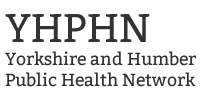Maternity and Early Years
The importance of improving planning and preparation for pregnancy Women and partners who are healthier at conception have a better chance of becoming pregnant, having a healthy and safe pregnancy, and giving birth to a healthy baby. Improving planning and preparation for parenthood is a fundamental principle of the Maternity Transformation Programme and Better Births’ vision for maternity services. Good health during the preconception period is a public health priority. Many of the health behaviours and risk factors for poor birth outcomes (for example, smoking, alcohol, folic acid, maternal weight) are established prior to pregnancy, often with limited potential to reduce these risks after conception. Health for both men and women before conception are important not only for pregnancy outcomes but also for health across generations. (Maternity high impact areas: Improving planning and preparation for pregnancy (publishing.service.gov.uk)
Giving every child the best start in life is a key strategic priority for OHID. If we want to achieve universal health improvement for babies and children and to narrow the health gap for those who are most vulnerable, we need to work together to embed care and support for healthy conception and pregnancy through care pathways for everyone of reproductive age. Improving prevention through individualised care pathways, with groups of women at specific or increased risk of poor outcomes, and at a population level, is key to achieving the ambitions and recommendations of Better Births and reducing inequalities in outcomes for mothers and babies.
Pregnancy and the early years provide an ideal opportunity for Public Health England and other professional groups to advise and support parents on a range of issues including:
- pre-conception care - to improve planning and preparation for pregnancy
- quitting smoking, to increase the number of women having a smoke-free pregnancy
- alcohol avoidance in pregnancy to reduce risk of long-term harm to the baby
- healthy eating habits, to increase the number of women entering pregnancy with a healthy weight and to increase the number of babies breastfed at 6 months
- health protection to maximise the benefit from the full maternal and child immunisation; and antenatal and new-born screening programmes provided by the NHS
- transition to parenthood, to support parents to make a positive emotional transition to parenthood and to reduce the burden of perinatal mental illness by improving access targeted and specialist interventions if needed
The first 1001 days (from conception to age 2) are recognised as a crucial period during which the foundations for future health and wellbeing are built.
During the first 2 years of life the brain displays a remarkable capacity to absorb information and adapt to its surroundings, therefore giving children the best start in life is fundamental in shaping individuals’ life chances in adulthood. There is compelling evidence to show that positive child experiences in the early years (0–5 years) are associated with a range of social outcomes including better performance at school, better social and emotional development, improved work outcomes, and improved health.
The public health workforce therefore work to improve the health of babies and infants to enable a happy healthy childhood and provide the foundations of good health in adult life. This is achieved through screening programmes to detect disorders at birth, health visitors and Early years practitioners who support families to help children’s physical and emotional development.
